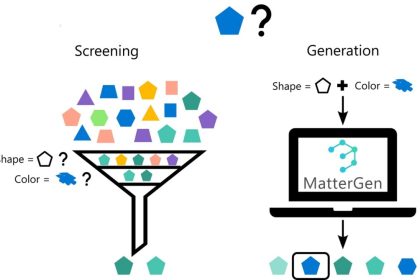In the world of literature, there is a concept called “grotesque”, which writers such as Sadegh Hedayat, Gholamhossein Saedi, and Sadegh Chubak use to simultaneously induce two feelings of fear and laughter to the audience. Their goal is to make the audience see the world from a strange perspective, which is scary for some and interesting for another group. This is the feeling that many people have towards the Metaverse world.
Metaverse is another world where current relationships have no place and provides a much deeper experience than social networks, games and other digital technologies. Metaverse takes us to the fantasy realm of the Matrix, where evil robots force a fake reality into the minds of imprisoned humans. A complete human comedy that can be funny and scary at the same time.
For a better understanding, we need to know where this concept came from and how the biggest players in the technology world define it.
The term metaverse is the brainchild of a writer named “Ben Thompson” and was first used in the science fiction novel Snow Crash to refer to a virtual world. In this story, he imagined avatars who meet in this virtual reality world.
A few months ago, before Facebook’s recent event drew all the attention to the Metaverse, Microsoft CEO Satya Nadella hinted at this concept. According to him, Metaverse is made of digital twins, simulated environments and mixed reality and is emerging as a new generation of platforms. By digital twins, he meant simulated examples of real objects such as cars, humans, and animals, but because the definition was not attractive and controversial, it did not attract much attention.
Zuckerberg, however, unlike him, always knows how to draw all eyes to himself. At the Facebook event in July, he claimed that Metaverse is something beyond virtual reality and computer games, and in fact, a new generation of the Internet, where you are inside instead of viewing content.
In Metaverse, you are no longer going to create a virtual character, but you enter a virtual world with the help of a headset and socialize, have fun, exercise, and work with other people. This description may seem exaggerated, but we already have most of the technology necessary to implement it.

Of course, not everyone was impressed by Zuckerberg’s praises, and Jessica Crispin, the Guardian columnist, in a sharp note referring to the space projects of Elon Musk and Jeff Bezos, called Metaverse another fantasy project of technology billionaires whose only purpose is to create a fantasy world to escape to. It is one of the responsibilities of these people in the real world.
According to Crispin, living in an imaginary space that is not psychologically and physically related to one’s relatives and actions are not punished, is flawed from a philosophical and psychological point of view.
Everyone knows that Facebook and Zuckerberg himself care about revenue and profit more than anything else. Thanks to the endless source of data and staggering wealth, these companies have gained enormous power and have infiltrated our lives so far.
Considering its huge dimensions, Metaverse doubles the access of this company to our small and large information and their power. Tim Sweeney, the founder of Epic Games and the developer of Fortnite, warned that the control of the metaverse by a limited circle of technology companies will lead to a dystopian nightmare that will swallow us all.
In Sweeney’s view, as they build the platforms underlying the metaverse, these companies are gaining access to new aspects and vast amounts of data about private communications that were out of reach on all previous social platforms.

In addition to communication problems, Metaverse can also be technically challenging. The deepest user experience we currently have for digital simulation is the virtual reality headset of companies such as Achilles; The company that was bought by the former Facebook and the current Meta in 2014.
This headset is not very suitable for the Metaverse world, and that’s why the technology giants are busy designing the interface between the brain and the machine to create a deeper experience, which blurs the border between us and our gadgets even more.
Brain-machine interfaces detect neural signals through electrodes or optical sensors attached to the skull or other parts of the body. Such an interface can even manipulate our thoughts with transcranial magnetic stimulation.
The mentioned companies are not even satisfied with this and are looking for implants in the brain that read the signals and send them directly to the neurons. Due to the high power of today’s processors, such a device can easily read and control the mind like the scenario of the movie Matrix.
In order to achieve such tools, Facebook has done extensive research to communicate directly between the machine and the brain. Facebook is not alone in this way, and recently researchers from the University of California quickly and permanently treated a 36-year-old severe depression with electrical stimulation of the brain, which was not cured by years of medication and even electroshock.
The most famous example in the field of brain implants is undoubtedly Elon Musk’s Neuralink, which allows the user to control a computer with just a thought by injecting an implant of a few micrometers into the cerebral cortex. The realm of this technology is not limited to humans and Musk said of a new project that by connecting a string of wires to the brain of a monkey, this animal is able to play video games; A scenario that even Jules Verne and Stephen King could not imagine.

The widespread and frightening applications of such implants on the human brain have made the military institutions of different countries, including the Pentagon, invest millions of dollars in research and research in the field of brain-machine interface.
The metaverse, especially the brain implant based version, is so strange and unbelievable that it may be impossible for many, but in a world where a nanometer virus breaks out of a laboratory, kills millions and forces billions to wear masks, Nothing can be impossible.
Although it is hard to trust the unholy coalition of money-loving tech giants, from climate change to war, social inequality and poverty have set a terrifying future for the world. In such a situation, taking refuge in the Metaverse world, where there is no news of big or small disasters, can be attractive for everyone.
Although the benefits of metaverse cannot be denied, but by diving into this world, the ability to distinguish reality from fantasy and truth from illusion becomes difficult and the person will be exposed to psychological collapse. The metaverse seems a little scary for now, but time will tell if we will cope with it like fire, cars and other inventions, or if we will step into a world where we will be slaves to Zuckerberg and Elon Musk.
RCO NEWS


















